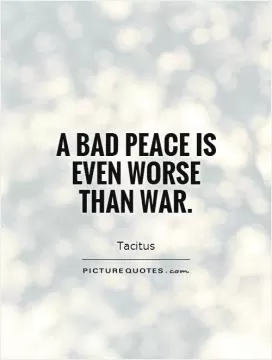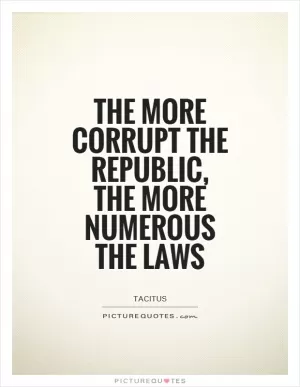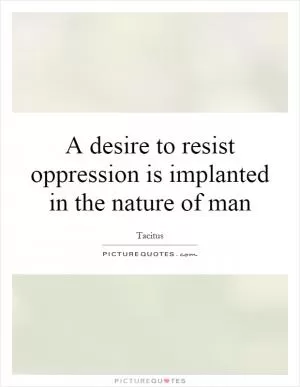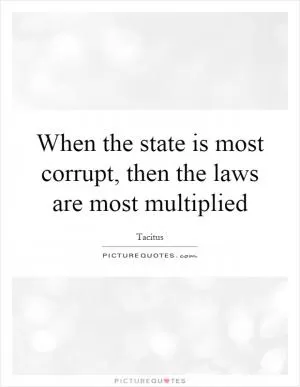[Referring to the Romans:] they make a desert and call it peace
![[Referring to the Romans:] they make a desert and call it peace Picture Quote #1 [Referring to the Romans:] they make a desert and call it peace Picture Quote #1](https://img.picturequotes.com/2/71/70259/referring-to-the-romans-they-make-a-desert-and-call-it-peace-quote-1.jpg)
[Referring to the Romans:] they make a desert and call it peace
The phrase "they make a desert and call it peace" is often attributed to the Roman historian Tacitus, although it is actually a paraphrase of his original words. In his work "Agricola," Tacitus writes about the Roman conquest of Britain and the tactics used by the Roman Empire to subdue and control the native populations. The full quote reads: "Auferre, trucidare, rapere, falsis nominibus imperium; atque, ubi solitudinem faciunt, pacem appellant." This translates to: "To ravage, to slaughter, to usurp under false titles, they call empire; and where they make a desert, they call it peace."Tacitus is critiquing the Roman Empire's brutal methods of conquest and colonization, highlighting the hypocrisy of their actions. The Romans would invade foreign lands, destroy villages, kill or enslave the inhabitants, and then claim that they were bringing peace and civilization to the region. This tactic of creating chaos and destruction in the name of peace was a common strategy used by the Romans to expand their empire and maintain control over conquered territories.
The phrase "they make a desert and call it peace" has been used throughout history to criticize the actions of imperial powers who use violence and oppression to achieve their goals. It speaks to the idea that peace achieved through force and domination is not true peace, but rather a facade that masks the suffering and injustice inflicted upon others.












 Friendship Quotes
Friendship Quotes Love Quotes
Love Quotes Life Quotes
Life Quotes Funny Quotes
Funny Quotes Motivational Quotes
Motivational Quotes Inspirational Quotes
Inspirational Quotes